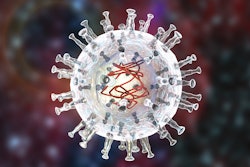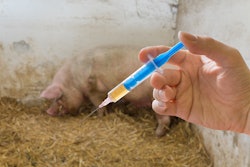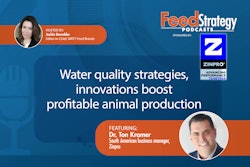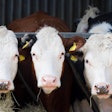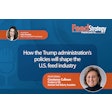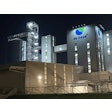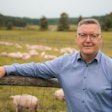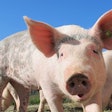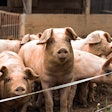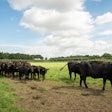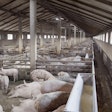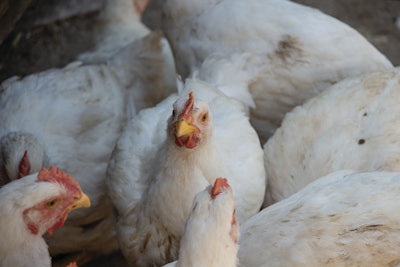
A one-of-a-kind framework report from the U.S. Roundtable for Sustainable Poultry & Eggs (US-RSPE) reflects, tracks and monitors the progress the broiler and turkey industries have made toward more sustainable operations.

“This collaborative effort provides valuable insights into areas such as environmental stewardship, animal welfare and workforce well-being, enabling stakeholders to measure progress and identify opportunities for continuous improvement.”
US-RSPE is an independent, multi-stakeholder organization that includes members from all segments of the poultry industry, such as growers, integrators, processors, retailers, foodservice companies, civil society groups, NGOs, allied industries and individuals. The organization's mission is to promote and communicate continuous improvement in sustainability across the poultry value chain.
About the framework
The US-RSPE sustainability framework is unique because of its wide multistakeholder approach, which includes input from consumers, world-renowned researchers, environmental groups, feed associations, farmer-led organizations, welfare experts, social compliance and safety organizations, restaurant chains, retailers and grocery stores and poultry producers, processors, suppliers, breeders and everyone in between in allied industries.
The framework not only provides a resource for poultry stakeholders to improve their individual sustainability, but it also aims to increase the industry’s transparency, share knowledge and advance the entire poultry sector’s sustainability progress.
Butterball, Cal-Maine Foods, Cargill, Darling Ingredients, Herbuck’s Poultry Ranch, Iowa Turkey Federation, Kreher’s Family Farms, McDonald’s Corporation, Peco Foods, Wayne-Sanderson Farms, Tyson Foods and West Liberty Foods were also involved in the development of the sustainability framework.
Three pillars of sustainability
The report shares anonymous, aggregated sustainability data across the three industries. It is divided into sections according to the framework’s three pillars – people, planet and poultry – and 15 priority areas, for example, energy and greenhouse gasses, antibiotic stewardship and biosecurity.
“This extensive scope allows us to assess various facets of sustainability, from environmental impact to community engagement,” Bennett noted.
These areas were identified as crucial for building trust with consumers of U.S. chicken and turkey.
According to Bennett, the Sustainability Framework Report is intended to be used by its members to provide transparency to its stakeholders and verify that participants are making continuous improvements that are environmentally sound, socially responsible and economically viable.
The purpose of the system is to help producers gain insight into their individual sustainability efforts and help the industry improve its ability to measure and communicate with stakeholders about the overall sustainability of the U.S. poultry and egg supply chains, explained Bennett.
“By embracing sustainable practices, you not only protect our natural resources and environment, but also enhance animal welfare and support the well-being of our workforce and community. Embracing sustainability meets consumer expectations and strengthens our industry’s reputation, ensuring we continue to provide nutritious, affordable protein,” said Lankford Ruffin, director of environmental affairs and sustainability, Butterball and US-RSPE board member.
Surprising findings in poultry feed impacts
One of the most surprising findings for Bennett in the report was the attention paid to poultry feed impacts, which is typically considered one of the biggest contributors to greenhouse gas emissions in the poultry supply chain.

According to the report 100% of broiler and 50% of turkey respondents track their annual feed grains to point of origin, while 60% of broiler and 25% of turkey respondents track down to the farm of origin.
“For me, the biggest surprise was just how much synergy there was amongst the turkey, egg and chicken industries,” added Ruffin. “There were only a couple of metrics that were different for turkey and egg, but everything else was fairly aligned."
Going forward
Bennett calls the report and framework a living, breathing organism designed to evolve, adapt and create new horizons for the poultry industry. Numerous efforts are underway to update both, including continuous outreach and educational efforts, a pilot project aimed to develop science-based verification for the framework and the establishment of a Grower Advisory Council.
“Together, we can ensure a sustainable future for the U.S. poultry and egg industry, benefiting our planet, our poultry and our people,” Bennett concluded.
For more information on the Sustainability Framework Report, go to www.us-rspe.org.
Attend the 2025 Poultry Tech Summit
The Poultry Tech Summit will return as an in-person event on November 3-5, 2025, at the Atlanta Airport Marriott in Atlanta, Georgia. The Poultry Tech Summit brings together inventors, researchers, entrepreneurs, poultry industry professionals and established technology providers to discuss challenges and solutions for all aspects of the poultry supply chain. The event focuses on the transition of innovative technologies from researchers and entrepreneurs into commercial applications for the benefit of the poultry industry.
NEW in 2025, Poultry Tech Summit will be held in collaboration with the U.S. Roundtable for Sustainable Poultry and Eggs (US-RSPE) annual meeting held November 5, 2025.
Registration for the 2025 Poultry Tech Summit opens in June. For more information, go to www.poultrytechsummit.com.



